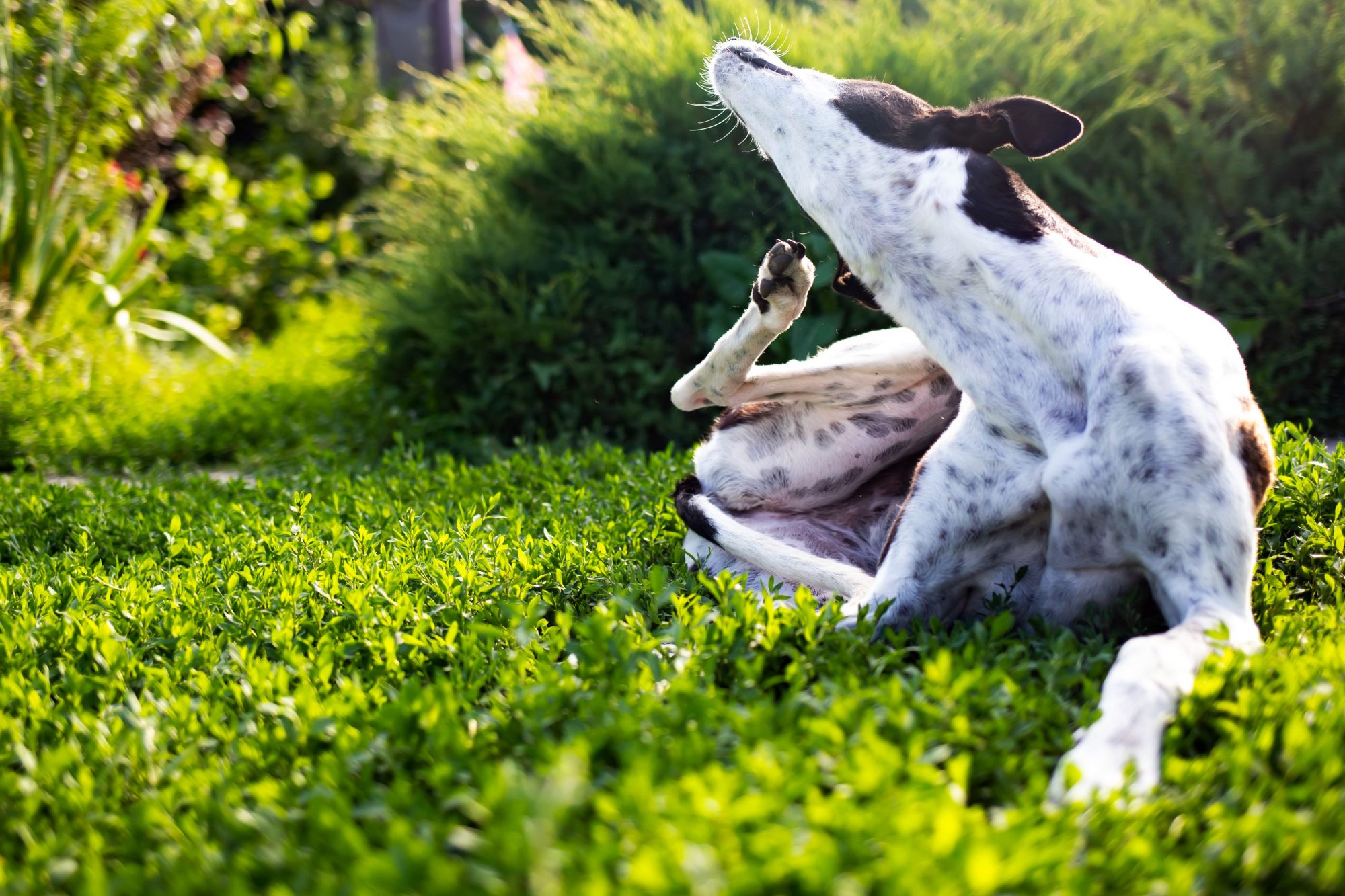Compulsive Pet Behaviors: Licking, Biting, and Scratching in Dogs

When it comes to mental illness, the pet population is not immune. Our animals can be affected by anxiety and other problems that can manifest in many ways. Compulsive pet behaviors are a common mental health concern that we see at Bayside Animal Hospital. Whether it be excessive licking, biting, chewing, or something else, there is no need for you and your pet to suffer.
The Root of Compulsive Pet Behaviors
When animals exhibit excessive or obsessive behaviors, there is almost always an underlying issue to deal with. Whether that problem is a physical or mental health issue can sometimes be difficult to discern. Luckily for our clients, sorting these things out is part of what our veterinarians do best.
Through thorough history taking, videos or descriptions of your pet’s behaviors, and diagnostic testing, we can often get to the root of the problem. This is the most important part of fixing things.
Common underlying causes of compulsive pet behaviors include:
- Pain or discomfort
- Anxiety or fear
- Stress
- Boredom
- Obsessive compulsive disorder
- Dementia/canine cognitive dysfunction
Help is On the Way
If your cat is overgrooming her abdomen, your dog is licking his paws incessantly, or your pet is biting at invisible shadows during family movie night, it can be pretty distressing for both you and them.
If you notice compulsive pet behaviors, it is important to contact us for a consultation so that we can get started helping. In the instance of a medical condition we will want to treat the underlying cause if possible.
If an anxiety or behavioral issue is diagnosed, sometimes medications may be helpful. We will work with you and your pet’s individual situation to make the most appropriate recommendations to get your pet feeling better soon.
Many behavioral issues also benefit from efforts on your end as well. In fact, in most instances some changes need to be made beyond just starting your pet on medication. Things that you can do to help include:
- Providing your pet with a consistent and predictable schedule
- Encouraging physical activity daily
- Providing mental stimulation with things like training sessions, treat puzzles, and visual stimuli such as videos designed for animals or a bird feeder outside the window
- Having daily social interaction with people or other animals (if your pet enjoys this)
- Making sure that your pet’s environment is equipped with species-appropriate needs such as feeding stations, safe sleeping spaces, scratching surfaces for cats, and vertical space for cats
- Providing a safe space such as a crate or dedicated room for your pet to retreat to
- Utilizing synthetic pheromones to help encourage a sense of calm and belonging
Compulsive pet behaviors can be disruptive, destructive, and damaging to your pet’s health and the human-animal bond. If you are experiencing this type of an issue with your beloved pet, do not wait to seek help. We are waiting to help you and your pet in whatever way that we can.


